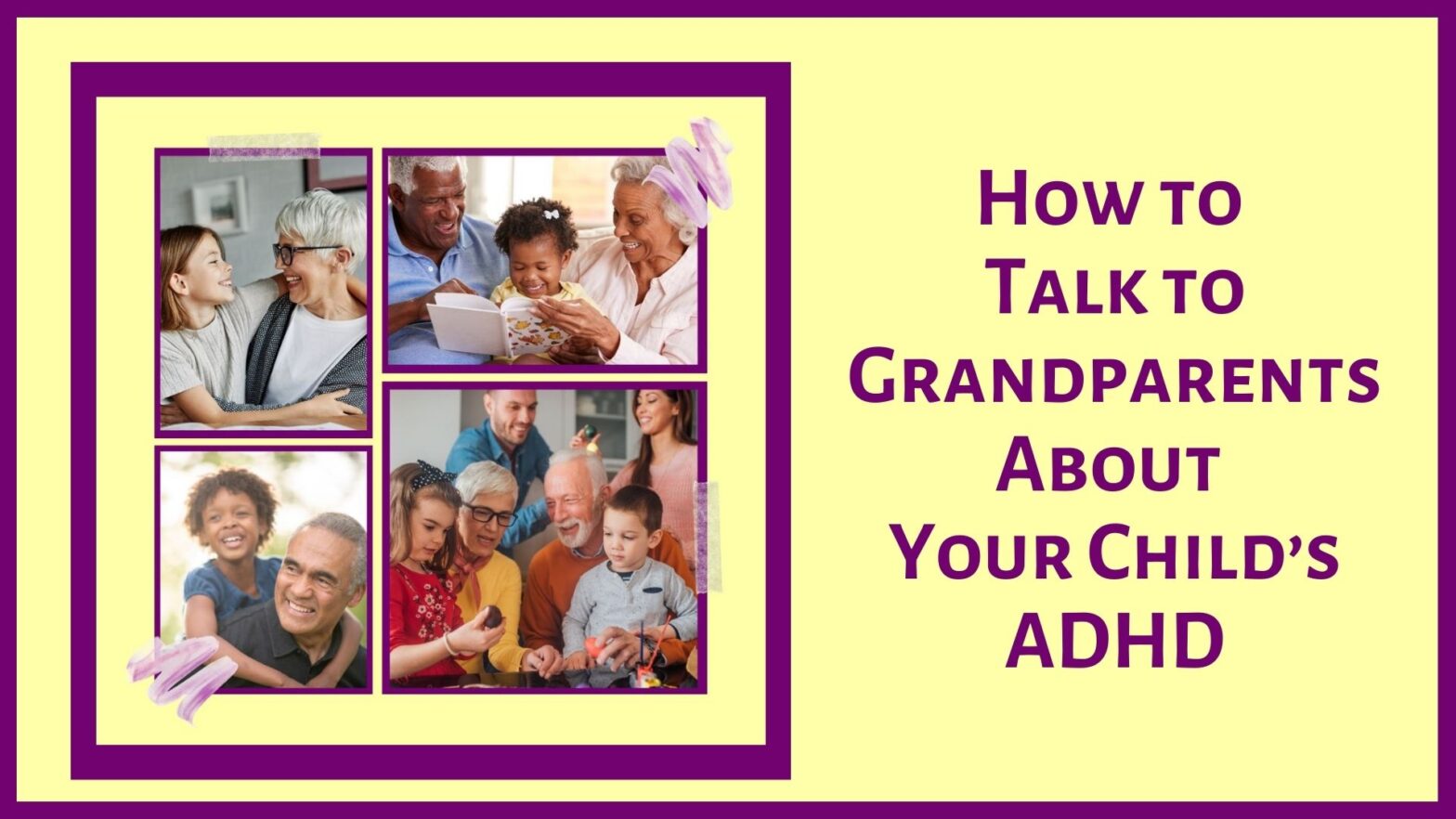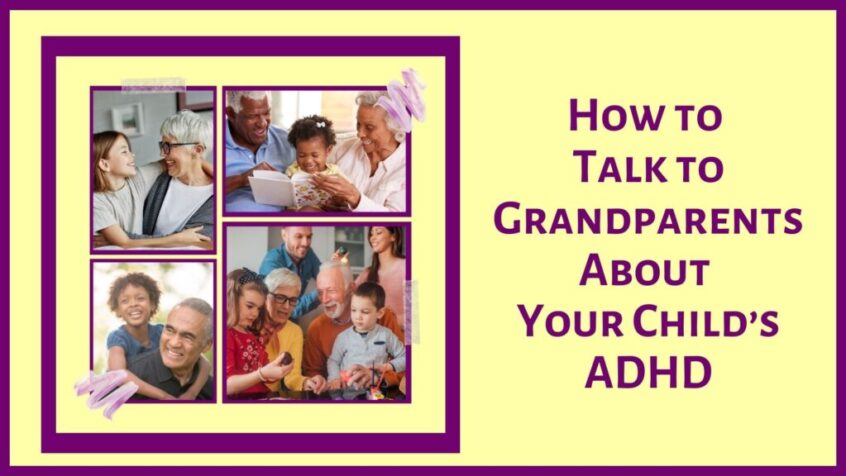Book A Call With ADHD Coach Kat Today
How To Talk To Grandparents (and others) About Your Child’s ADHD
Helping Grandparents Understand, Support, and Connect
One of the challenges that often crops up when we have children with ADHD is managing their relationship with their grandparents – and other well meaning friends and family.
Talking about ADHD with grandparents can be challenging, especially if they come from a different generation with different views on ADHD and behavior.
Being able to help grandparents understand ADHD and how it impacts your child and family can drastically improve their relationship with your child(ren).
Let’s chat about how to explain ADHD in simple terms and some practical ways for grandparents to support your family.
Explaining What ADHD Actually Is
ADHD is a brain-based, neurological condition that impacts things like focus, impulsivity, and emotional regulation.
It impacts executive function development.
Those are the skills we need to be able to make a plan and follow through with it.
ADHD is not just about being hyper or daydreaming – it’s a whole different way of processing the world.
Give them a relatable example of what ADHD is like “Trying to watch TV and someone keeps changing the channels.’ Or something similar.


Address The Common Misconceptions
My grandparents, and other people to, might believe outdated myths about ADHD.
They may say or think things like, “It’s bad parenting”, “kids need more discipline”, or “boys are just being boys.”
Try to gently reframe these thoughts by offering facts.
ADHD is a neurological condition, it’s not a choice.
Discipline and punishments won’t cure or fix ADHD – support, structures, and strategies do help.
Kids with ADHD want to do well.
They are not giving us a hard time, they are HAVING a hard time.
Kids with ADHD have executive functioning skills delayed by up to 30% – so when your 10 year old doesn’t complete a task you think they should be able to – remember that their executive function skills may be that of a 7 year old.
What Does ADHD Look Like For THIS Child
Now’s the time to make it personal.
Describe your child’s specific ADHD traits – what the things are they are struggling with most.
For example, struggles with transitions, struggles to follow directions, etc.
Make sure to explain both the challenges your child is having AND the strengths they are discovering.
Are they very creative?
Are they good problem solvers?
Make sure to give a balanced explanation to help reframe ADHD.
Emphasize that your child is not trying to be difficult, that they are struggling and need extra support.


How Grandparents Can Help
Give the grandparents some concrete ways that they can help support your child and your family.
Here are a few possible prompts.
- Be patient – avoid saying things like “sit still” or “try harder.”
- Give clear one-step instructions – instead of “clean your room” try “put your books on the shelf.”
- Encourage their strengths, engage with them in ways that emphasize their strengths.
- Praise, Praise, Praise – Our kids receive exponentially more negative input and feedback from the adults in their lives than their neurotypical peers. Find ways to praise and compliment when possible (but be real, don’t fabricate things.)
- Cooperate with accommodations – Explain to the grandparents what your child’s current accommodations are, and ask them to cooperate and respect those. These are supports the child needs, not excuses.

Some grandparents may be dismissive of the diagnosis.
Try to respond with empathy but maintain your family’s boundaries.
If needed, set boundaries and limits to support your child and yourself.
Share resources, books, short videos, etc. with Grandparents.
Invite them to a therapy session if they are open to it.
Encourage them to ask questions and be a detective.
Understanding ADHD will help grandparents be able to connect more deeply, help their grandchildren regulate emotions, and collaborate with their grandkids.
Remind those who love your child that they don’t need to “fix” your child – they just need to be a supportive presence.
When grandparents learn about ADHD they can be powerful sources of support and positivity in their grandchild’s life.

 Don’t Delay Joy
Don’t Delay Joy
Kat Sweeney, MCLC


